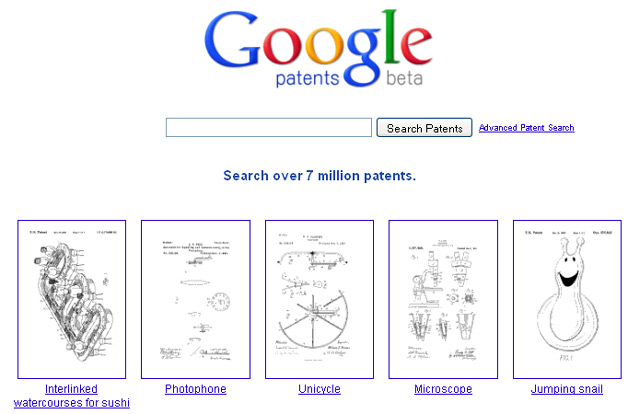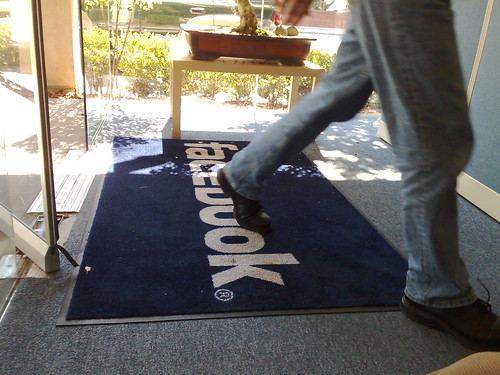Update: Chinese government officials have responded to Google’s proposed actions. As reported by Bloomberg:
"The Chinese government administers the Internet according to law and we have explicit stipulations over what content can be spread on the Internet," Foreign Ministry spokeswoman Jiang Yu said at a regular briefing in Beijing today. Chinese law prohibits hacking and other forms of online attacks, she said, declining to say whether that law also applies to state agencies.
…
"Effective guidance of public opinion on the Internet is an important way of protecting the security of online information," Wang Chen, director of the State Council Information Office, said in a question-and-answer session with reporters, a transcript of which was posted on the office’s Web site today.
Google.cn has reportedly stopped censoring its results, and many expect it to be blocked, although (at least from here in the U.S.) it is currently still accessible, and even has a doodle up.
Original Article: Google’s situation in China appears to be the biggest story to hit the tech industry in some time, at least in terms of discussion. If you’re not up to speed, we covered Google’s announcement here. What it boils down to is that Google may shut down its operations in China, where it has been censoring search results. Google is now taking the stance of no longer censoring, and the world is waiting to find out if and how China and Google can resolve the issue.
Share your two cents about the Google China situation.
It has come to light that the attacks against Google that kicked this whole thing off were part of a string of attacks against 33 companies according to iDefense (this is more than the "at least 20" Google suggested). The other companies are all unknown at this point, except Adobe. Wired Threat reports:
A hack attack that targeted Google in December also hit 33 other companies, including financial institutions and defense contractors, and was aimed at stealing source code from the companies, say security researchers at iDefense.
The hackers used a zero-day vulnerability in Adobe Reader to deliver malware to the companies and were in many cases successful at siphoning the source code they sought, according to a statement distributed Tuesday by iDefense, a division of VeriSign. The attack was similar to an attack that targeted other companies last July, the company said.
As Google noted in its announcement, it looks like a goal of the attackers was to access the Gmail accounts of Chinese Human Rights activists. Again, more on the original story here.
 The U.S. government is now involved. Secretary of State Hillary Clinton issued the following statement:
The U.S. government is now involved. Secretary of State Hillary Clinton issued the following statement:
We have been briefed by Google on these allegations, which raise very serious concerns and questions. We look to the Chinese government for an explanation. The ability to operate with confidence in cyberspace is critical in a modern society and economy. I will be giving an address next week on the centrality of internet freedom in the 21st century, and we will have further comment on this matter as the facts become clear.
Opinions and speculation are rapidly flying around all over the web. Some feel that Google’s move is more of a business decision than really about "not being evil" and ethics. Robert Scoble, who is "torn" on this notion, has an interesting analysis up, in which he talks about "the push and pull of China" based on his travels to the country.
Here are a few other noteworthy reactions from various blogs and news outlets:
Henry Blodget at Silicon Alley Insider:
"Google made the right decision to build a business in China a few years ago. And it’s making the right decision now, by threatening to pull out of the country if China doesn’t relax its censorship demands. "
"Google’s decision to make a big public threat now, when it controls 15%-20% of China’s search market and is known to most Chinese Internet users, will put far more pressure on the Chinese government to relax its policies than a boycott of the country five years ago would have."
Google matters in China now.
Jeff Jarvis at Buzz Machine:
Note that even Google’s cofounder, Sergey Brin, has waffled if not agonized over the company’s China policy.
I can well be accused of being a Google fanboy; I wrote the book. But I have been consistent in my criticism of Google’s actions in China. And so now I have not choice but to become even more of a fanboy. I applaud Google for finally standing up to the Chinese dictatorship and for free speech.
Will the Chinese people revolt at losing Google? We can only hope. Will other companies now have to hesitate before doing the dictators’ bidding? We can only hope. Will Google be punished by Wall Street? It probably will. But as I’ve argued, we should hope that Google’s pledge, Don’t be evil, will one day be chiseled over the doors of Wall Street.
Frank Reeding at Marketing Pilgrim:
While the Chinese people are clearly in favor of Baidu as their engine of choice, if Google were to say that they will not do business in China what kind of pressure does that place on other companies to possibly isolate the biggest and fastest developing market in the world? This could get interesting.
From the New York Times:
"The whole industry will become worse," says Yu Yang, chief executive of Analysys International, a Beijing-based research firm. "As for Baidu, without competition with Google, Baidu has no motivation to innovate."
Stephen E. Arnold at Beyond Search:
"Amidst the furor of the Google – China issue, I noticed that most of the pundits ignored the global disruptive power of a Google decision. I may be one of the few—maybe the only addled goose—pointing out that Google operates like a nation-state, not a garden variety company."
Patrick Chovanec at Seeking Alpha
But in China, nobody issues an ultimatum — especially not to the government — unless they are fully expecting a final and irreconcilable break. As long as you have some hope of a favorable outcome, you bite your tongue. That’s precisely why Facebook, YouTube, and Twitter have uttered not a word of complaint, even as a six-month ban on accessing those sites has left their Chinese market share in ruins. Google’s decision to publicly throw down the gauntlet — a move sure to be seen by the Chinese government as a virtual declaration of war — is a sign the company has already written off China and is ready to pack its bags.
Philipp Lenssen at Blogoscoped quotes Google lawyer on CNBC:
 When CNBC asked Google’s David Drummond in an interview, "Can you verify… that the cyber attacks were government based?”, David answered: "I want to be very careful here and be very clear. We’re not saying, one way or the other, whether these attacks were state-sponsored or done with any approval of the state. We can’t speculate on that at this point. What we do know is that they were highly organized, and we believe that the attacker came from China, and we know that political dissidents and people interested in human rights in China were clearly targeted here."
When CNBC asked Google’s David Drummond in an interview, "Can you verify… that the cyber attacks were government based?”, David answered: "I want to be very careful here and be very clear. We’re not saying, one way or the other, whether these attacks were state-sponsored or done with any approval of the state. We can’t speculate on that at this point. What we do know is that they were highly organized, and we believe that the attacker came from China, and we know that political dissidents and people interested in human rights in China were clearly targeted here."
As another speculative reason, Google now fighting for an uncensored Google.cn could have been part of the original plan, too: first, get into the market and find a relevant amount of users; second, potentially use that user base leverage for discussions about free speech issues.
Rebecca MacKinnon at RConversation:
Google’s decision was tough and is going to have a great deal of difficult fallout. Still, based on what I know, I think Google has done the right thing. They are sending a very public message – which people in China are hearing – that the Chinese government’s approach to Internet regulation is unacceptable and poisonous. They are living up to their "don’t be evil" motto – much mocked of late – and living up to their commitments to free speech and privacy as a member of the Global Network Initiative.
The best way to keep up with the most recent commentary may be to follow a query like this on Twitter.
Though there has already been an incredible amount of discussion on this topic, you can pretty well guarantee that it is only the beginning. As more of the story unfolds, it’s going to be quite interesting to see how the Google China situation turns out. It is big for the search industry in China, and it is big on a government level. It will also be interesting to see what to what extent the U.S. government gets involved.
What do you think of Google’s actions? Share your thoughts in the comments.
Related Articles:
> Google May Quit China
> Gmail Switches to Default Https Encryption Following Attack
> Google Bows to Chinese Authors on Book Scanning
 "Internet advocates love to say that information likes to be free," wrote Mashable’s Samuel Axon recently when he compiled a
"Internet advocates love to say that information likes to be free," wrote Mashable’s Samuel Axon recently when he compiled a 

 A message at
A message at  "What is fair in terms of ordering?" asks Mayer. "An alphabetical listing? Equally, new results will need to be incorporated – new web pages, but also new media types such as tweets or audio streams. Without competition and experimentation between companies, how could the rules keep up? There is no doubt that this will stifle the advance of the science around search engines."
"What is fair in terms of ordering?" asks Mayer. "An alphabetical listing? Equally, new results will need to be incorporated – new web pages, but also new media types such as tweets or audio streams. Without competition and experimentation between companies, how could the rules keep up? There is no doubt that this will stifle the advance of the science around search engines." First, cloud computing can provide improved security. Under legacy computing models, data is stored on local computers – this is the equivalent of keeping cash under your mattress. Storing data securely in the cloud is like keeping cash in a bank. (To learn more, check out our
First, cloud computing can provide improved security. Under legacy computing models, data is stored on local computers – this is the equivalent of keeping cash under your mattress. Storing data securely in the cloud is like keeping cash in a bank. (To learn more, check out our 
 Early in 2009, when Twitter employed less than 50 people, we faced two different security incidents that impacted a small number of users. Put simply, we were the victim of an attack and user accounts were improperly accessed. There were 45 accounts accessed in a January incident and 10 that April for short periods of time. In the first incident, unauthorized joke tweets were made from nine accounts and attackers may have accessed nonpublic information such as email addresses and mobile phone numbers. In the second, nonpublic information was accessible and at least one user’s password was reset.
Early in 2009, when Twitter employed less than 50 people, we faced two different security incidents that impacted a small number of users. Put simply, we were the victim of an attack and user accounts were improperly accessed. There were 45 accounts accessed in a January incident and 10 that April for short periods of time. In the first incident, unauthorized joke tweets were made from nine accounts and attackers may have accessed nonpublic information such as email addresses and mobile phone numbers. In the second, nonpublic information was accessible and at least one user’s password was reset.

 If supported by further investigation, the findings raise as many questions as they answer, including the possibility that some of the attacks came from China but not necessarily from the Chinese government, or even from Chinese sources.
If supported by further investigation, the findings raise as many questions as they answer, including the possibility that some of the attacks came from China but not necessarily from the Chinese government, or even from Chinese sources.
 "Mobile internet access is an important way Americans are staying informed.
"Mobile internet access is an important way Americans are staying informed.  66% of all government agencies currently use some form of social networking – from blogs and wikis to instant messaging and discussion boards, according to the study. 31% of those surveyed have embraced social media as a means of providing a more efficient customer feedback channel.
66% of all government agencies currently use some form of social networking – from blogs and wikis to instant messaging and discussion boards, according to the study. 31% of those surveyed have embraced social media as a means of providing a more efficient customer feedback channel. 


